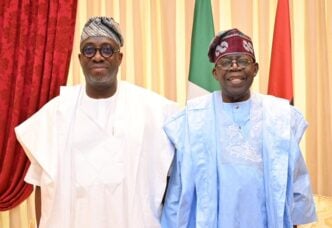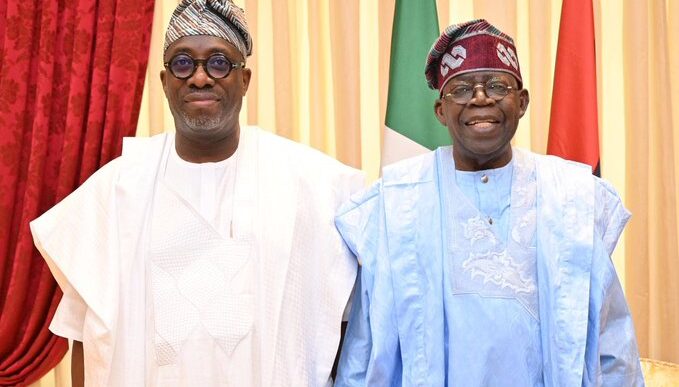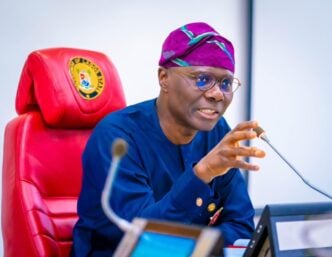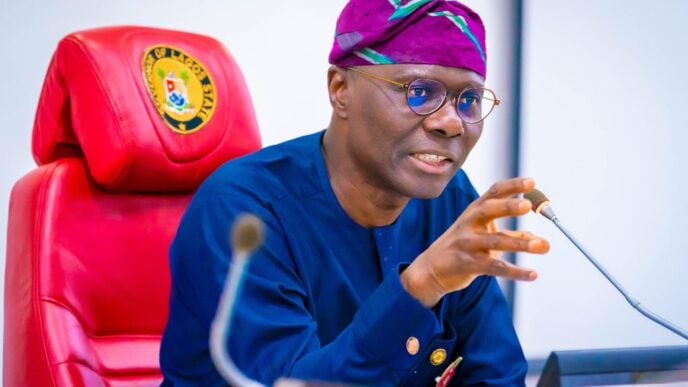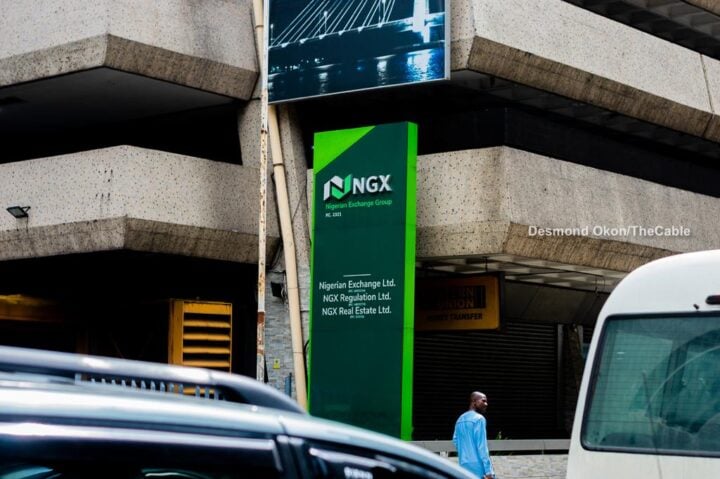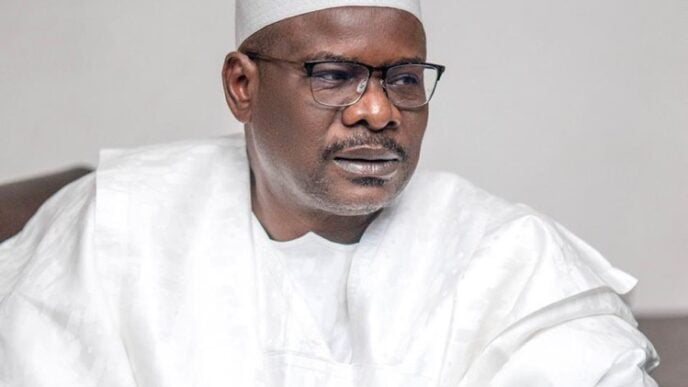Over a decade after spearheading the Good Governance Tour as Nigeria’s minister of information, Labaran Maku has revived the initiative — this time as a civil society-led intervention aimed at strengthening democratic accountability across the country.
The programme, which began under the administration of ex-President Goodluck Jonathan, is being repositioned as a non-partisan effort to monitor, report, and interrogate development projects and government performance across Nigeria.
In this interview with TheCable’s JERRYWRIGHT UKWU, Maku discusses the rationale behind restarting the Good Governance Tour, the lessons from his recent visit to Benue state, and how the initiative could be scaled to other parts of the federation.
TheCable: You had a media tour in Benue, which now culminated in a town hall. What’s the significance of this whole event?
Advertisement
Maku: The whole significance of this event is holding the government accountable to the people, and holding democracy accountable to the people. Directing the attention of leaders and the democratic system to service the people.
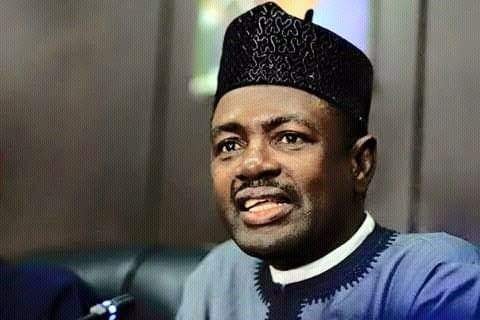
When I conceived this programme when I was minister of information, the idea was that politicians everywhere argue, talk, and dispute each other. Let us as media go down to see what they are doing for the people. Overall, all the arguments, all the contests, all the elections, all the disputations, it’s about service to ordinary people who don’t even have direct access to their leaders.
TheCable: Why did you decide to relaunch this programme now, almost a decade after leaving office?
Advertisement
Maku: I feel one of the agenda-setting things we, as journalists, can do is to focus on development and compel those in leadership to respond to the needs of the people. And if you say you have done something, it’s not enough for you to say it. Let us as media people verify it. Let us touch it. Let us smell it. Let us show the people where it is. Let us see the state of the work you are doing. Let us hear from the people who are down at the grassroots. What do they feel about this project? Is it really there? Is it going to impact their lives?
TheCable: How effective was the original Good Governance Tour in actually influencing performance among governors?
Maku: When I was a minister, as I was going around for the national good governance tour, I know many governors who called me back to say I saved them. They were sleeping. They didn’t know what they were doing until they realised that the whole media was coming to see what they were doing. They went back to revisit their projects, to work on them because it was going to be a shame if we arrived in their state and they had nothing to show.
So, for me, compelling the governments to work, and getting them accountable to show what they are doing to the people was a major achievement of that programme.
Advertisement
TheCable: After the 2015 elections, the initiative seemed to disappear. Why didn’t it continue?
Maku: Unfortunately, our government did not win back in 2015. The idea was to make that programme a permanent one. And I noticed after I left the government that the best way to continue this programme is to let it be from civil society. Because if it is from the government, the government will go, and another priority will change.
TheCable: You’re working with Mike Omeri of Timbuktoo Media Solutions now. Can you talk about the structure and neutrality of the revived version?
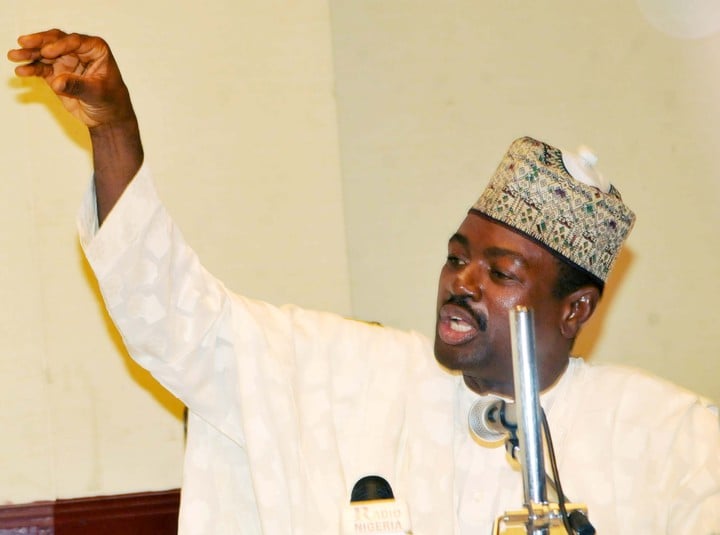
Maku: It’s still a process — a work in progress — to make sure that we develop a permanent civil society-driven platform to oversee government, to report development, to tour every aspect of our democracy, our community, to see what governments are doing. So, it is neutral. It has nothing to do with APC or PDP. We are professionals.
Advertisement
Doctors don’t ask their patients which party they belong to. Lawyers don’t ask their clients what party they belong to. They render services. What we are doing here is purely to report democracy. I’m not in APC but even when I was in government, I toured APC states — Zamfara, Nasarawa, Imo. We all agreed that we should set our differences aside and let the media assess what politicians are doing across board.
Look at what happened at the town hall in Benue. Somebody from Zone C said: “Look, we have not seen any development in Zone C.” And that might have been the prevailing perception. Now, the deputy governor, who happened to come from Zone C and was also representing the governor, stood up and gave a rundown of the roads, their distances, and the money spent. The hall went quiet. People knew that the government was not excluding any zone in its development efforts.
Advertisement
Even the traditional rulers spoke the truth concerning the security situation in their domains. The government has heard them. The government is compelled to say, “Look, we are going to do something about it. Be patient. Give us time.” That is what democracy is all about. You must respond to the needs and aspirations of the people.
TheCable: Beyond putting the government in the spotlight, what role should citizens play in this development process?
Advertisement
Maku: This whole programme is designed to hold the government accountable to the people and also to let citizens know that they have a responsibility to the government — to play their roles as citizens. You cannot deal with security if citizens keep quiet. The government is not in every nook and cranny of the state. If there is a threat, people should report it. People should give advance information to security agencies and the government.
Again, these are all the things we are trying to achieve — to return the attention of government to development, to service, to people. That is what democracy is all about. That is what government is all about.
Advertisement
The whole essence of this really is to make sure that we, as media people, as journalists, create an environment for the government to account to the people, to engage the government and the people, to create platforms for interrogation of what the government is doing. Then, the people will be the owners of this democracy and will be the subject matter of every development and of every leadership cycle.
TheCable: Is there a feedback mechanism? Is there an audit measure to give feedback to the government after each tour?
Maku: Yes, we definitely will give a report to the government from the things we saw in the street, the people, what we heard, people’s feelings, what we see about processes going on.
We, in addition to this public accountability forum, will also sit with the governor and his government to advise them on the things we have seen, to let them know where they can make amends and where they can improve. Where we think things are not going well by our observation, we will also let them know. Where they are doing well, we will encourage them to do better.
The idea is for the government to show love to every citizen, to every group, to every constituency — and to work hard to ensure that they impact the lives of people.
This is the beginning. We hope that other states will enable us to have the opportunity to go and talk to their states and bring them and their people together to discuss development and progress.


